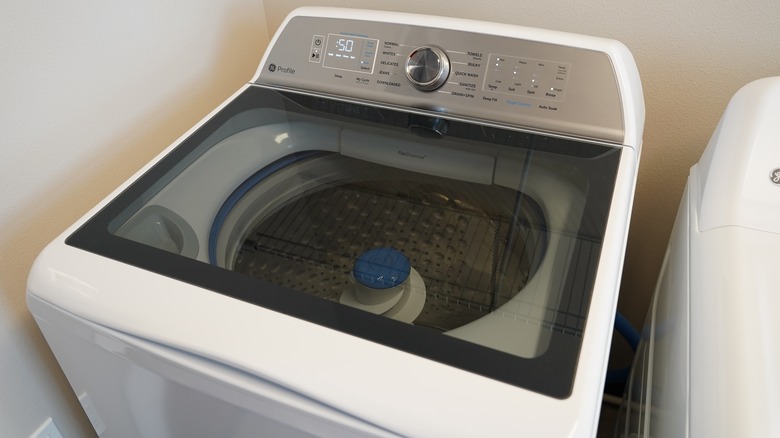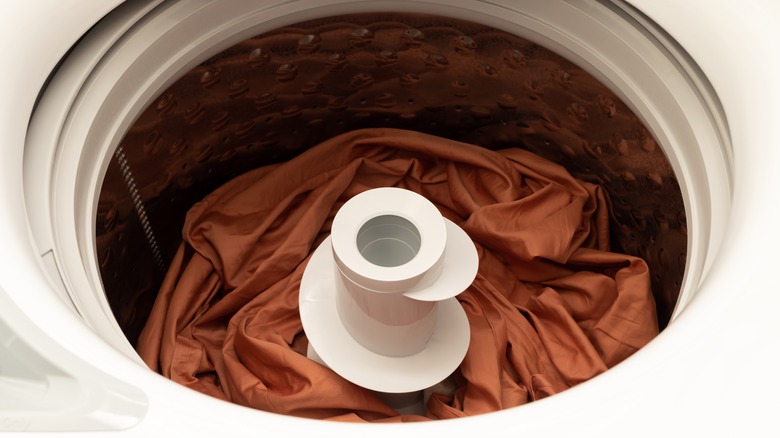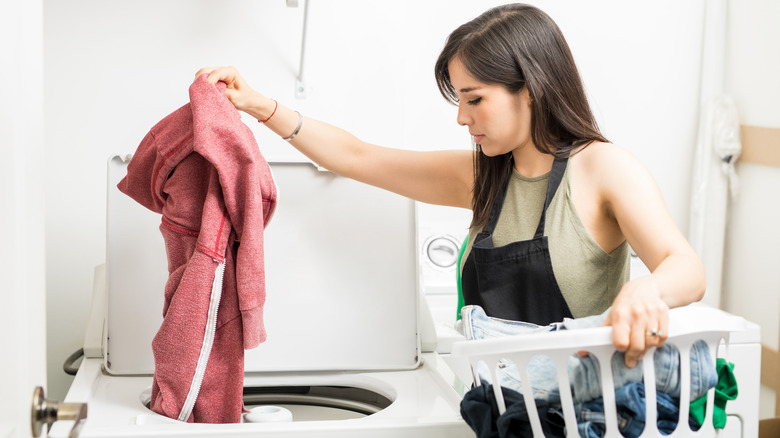What To Know About Agitator Washing Machines Before Investing For Your Laundry
If you're in the market for a new washing machine, then you've probably come across two main types: washers with agitators and impeller models. While either option will get the job done, how do you determine which one is the better option to invest in? Whether a washer with an agitator is "better" really depends on your specific laundry needs and preferences. Agitator washers have been around for more than 100 years and are considered traditional washing machines. Many people prefer them as they are reliable and straightforward to use while also being more affordable than the high-efficiency (HE) impeller options. Nearly half of agitator washers sell for $700 or less.
Some people feel that agitator machines provide a more thorough clean, especially for really dirty items like sports uniforms or work clothes, thanks to their ability to churn clothes around in the water. If you're someone who deals with lots of tough stains, then a washer with an agitator could be the way to go. They tend to be faster, often completing cycles in less time than machines that don't have agitators. Many people also appreciate the simplicity of these machines, as they often come with fewer settings, making them easy to use without dealing with complex programs. That said, it's worth noting that high-efficiency machines without agitators, like front-loaders or top-loaders with impellers, are becoming more popular.
What does an agitator do in a washer?
Agitators are the central column in the middle of the wash drum, which has fins or vanes. They are typically found in top-loading washers and are designed to physically move clothing around the machine. When the machine operates, the agitator will move back and forth in a twisting and turning motion. This helps to evenly distribute the detergent and water, allowing it to penetrate the fabrics and loosen dirt, grime, and stains. It also can prevent items from clumping together, which can happen in a washer without an agitator. This is especially useful for items like jeans, towels, and heavily soiled clothing.
The movement of the agitator will vary depending on what wash cycle you use, from a gentle rotation for more delicate fabrics to a more aggressive action for items that require a deeper clean. While there's no doubt they are effective at cleaning, some people believe they can often be too rough on clothes. This can cause wear and tear over time compared to other washing machines, such as high-efficiency or impeller options.
What are the disadvantages of an agitator washing machine?
While agitator washers can be highly effective at cleaning, there are a few downsides to consider before you invest in one. One of the main concerns is their harshness on fabrics, especially delicate ones like silk, lace, linen, or satin, which can tear or become snagged in an agitator washer. If you often wash lightweight or fragile garments, an impeller or front-load machine may be a gentler option. Agitator washers also tend to use more water and have lower energy efficiency than impeller models, which can result in higher utility bills, especially if you have a larger household.
Additionally, the agitator takes up space in the drum, which means it has a lower capacity, making it harder to wash large or bulky items like comforters or pillows that won't fit in your washing machine. The machines can also be noisier than impeller or front-loading models and may shake loudly and cause noise disturbances in your home. Finally, agitator machines often don't have the advanced features found in newer models, like steam cleaning or custom wash cycles, which might be a drawback for those who prefer the convenience of modern technology.


